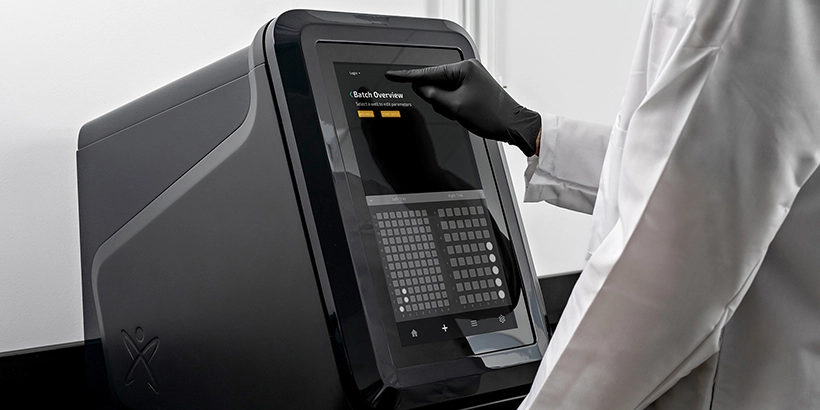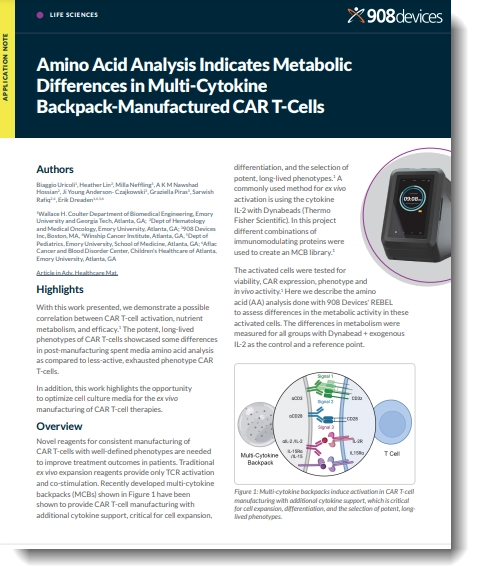The potential to optimize cell culture media for the ex vivo manufacturing of CAR T-cell therapies
This study explores the relationship between CAR T-cell activation, nutrient metabolism, and treatment efficacy. It highlights differences in amino acid (AA) concentrations in spent media between potent CAR T-cell phenotypes and less-active, exhausted ones. By using novel multi-cytokine backpacks (MCBs) in cell culture, the research aims to enhance T-cell manufacturing, focusing on the metabolic profiles linked to different phenotypes. The analysis revealed that certain AAs, such as alanine and glycine, accumulated during culture while others, like arginine, were consumed, indicating active metabolic pathways. With automated quantitation and low sample volume requirements, the REBEL analyzer from 908 Devices facilitated efficient AA quantification, underscoring its potential for optimizing CAR T-cell culture media. Overall, the findings suggest that understanding AA dynamics could improve CAR T-cell therapies.
Download the application note to learn more about REBEL and the ability to identify distinct correlations between metabolic activity and CAR T-Cell activation and efficacy.



